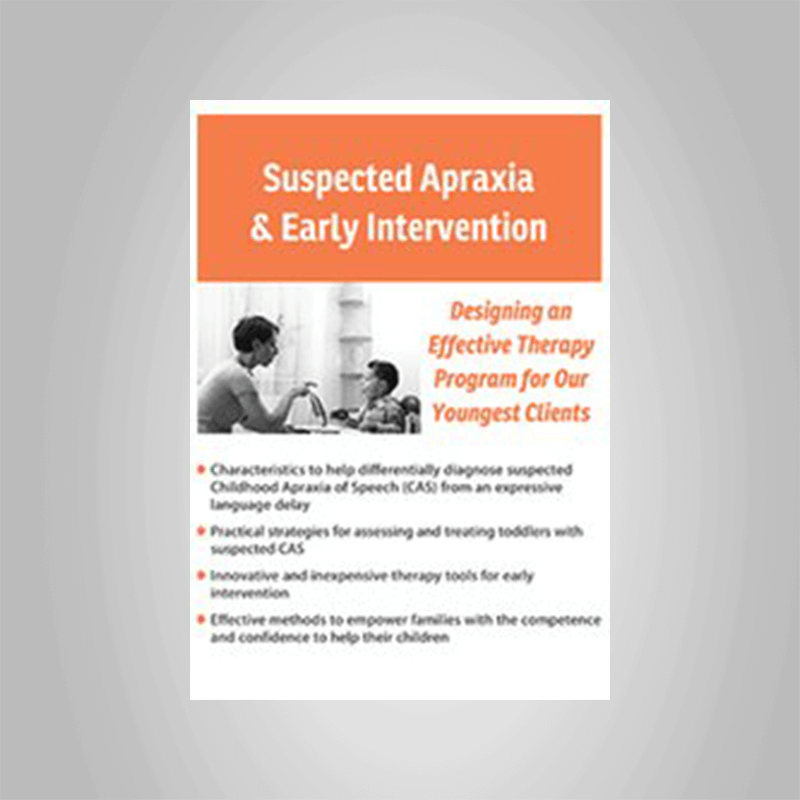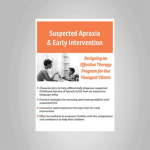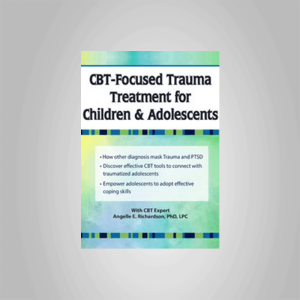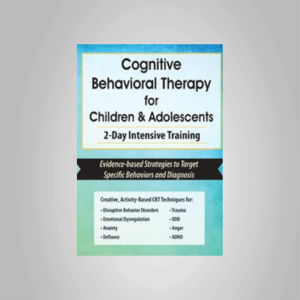Cari Ebert – Suspected Apraxia and Early InterventionDescriptionProviding Effective Early Intervention ServicesBeing able to effectively communicate is how young children interact, socialize, and learn. There is cause for concern when a young child has strong cognitive and receptive language skills, but is essentially non-verbal. It is important for therapists to be able to differentially diagnose an expressive language delay from suspected Childhood Apraxia of Speech (CAS). Therapy for a toddler with suspected CAS should have a set of unique parameters that will facilitate the development of motor planning skills. Because children with suspected CAS often progress slowly and demonstrate highly inconsistent verbal productions, it can be difficult to measure progress and documentation can be a challenge. Caregiver involvement is a critical component of early intervention services and each family needs to be provided with functional strategies that can be embedded into their daily routines to help their child become an effective verbal communicator.This recording is packed full of clinically relevant ideas and activities to fine-tune therapy sessions for young children with suspected CAS. After watching this course you will look at your caseload in a whole new light and be able to pinpoint which children are in need of more specialized programming. Therapists will gain hands-on knowledge of ways to modify existing therapy materials designed for older kids with CAS to make them fun and functional for use with toddlers. From assessment, to therapy materials, to documentation standards, participants will discover ways to create the best therapy model for toddlers on their caseload with suspected Childhood Apraxia of Speech.HandoutsManual – Suspected Apraxia (1.98 MB) 82 Pages Available after PurchaseOutlineOVERVIEWDefining apraxiatypes of apraxiaclinical definitionsexplanation for familiesBirth to 3 programs and eligibility issuesEarly brain developmentASSESSMENT OF CASFormal vs. informal assessmentCharacteristics of toddlers with suspected CASCharacteristics of 3-5 year olds with CASAcademic issues and CASCo-existing conditionsInformal assessment hierarchyDIAGNOSISShould we diagnose CAS in toddlers?Misdiagnosing CASPrevalence of CASMaking a differential diagnosisTHERAPYFrequency and duration of services in early interventionPurpose of EIFamily participationFun and effective therapy without drill workGoals and activities for the pre-verbal childArticulation vs. motor planning therapyStrategies for families and caregiversTo sign or not to signPicture communicationPrognosisDOCUMENTATIONWriting IFSP outcomesFunctional vs. isolated skillsDocumenting functional gainsCASE STUDIESFacultyCari Ebert, MS, CCC-SLP,CARI EBERT, MS, CCC-SLP, is a pediatric Speech-Language Pathologist in private practice in the Kansas City, Missouri area. She received her Bachelor of Arts degree from the University of Iowa and Master of Science degree from Southern Illinois University at Carbondale. For 20 years, Ms. Ebert has served as a therapist, consultant, and a nationally recognized speaker.She works with young children, ages birth to five, and their families and believes that early intervention is the key to future success. She has dedicated her career to helping young children achieve their maximum potential with speech, language, and social development. Ms. Ebert’s son has autism spectrum disorder and apraxia, allowing her to engage this topic, both as a clinician and a parent of a child with special needs. She embraces the coaching model of service delivery and empowers parents to help their child develop. Ms. Ebert presents evidence-based, clinically-relevant information regarding early child development. Whether you are a pediatric therapist or an early childhood educator, you will benefit from the fun, effective therapy solutions found in her seminars.Speaker Disclosures:Financial: Cari Ebert is the owner of Summit Speech Therapy, LLC. She receives a speaking honorarium from PESI, Inc.Non-financial: Cari Ebert is a parent of a child with special needs.
 Carol Kershaw, Bill Wade – 2-Day Intensive Neuroscience for Clinicians Course: Bring the Brain into Therapy
₹10,790.00
Carol Kershaw, Bill Wade – 2-Day Intensive Neuroscience for Clinicians Course: Bring the Brain into Therapy
₹10,790.00
 CBT For Depression, Anxiety, Phobias, and Panic Attacks
₹3,154.00
CBT For Depression, Anxiety, Phobias, and Panic Attacks
₹3,154.00
Cari Ebert – Suspected Apraxia and Early Intervention
₹5,810.00






